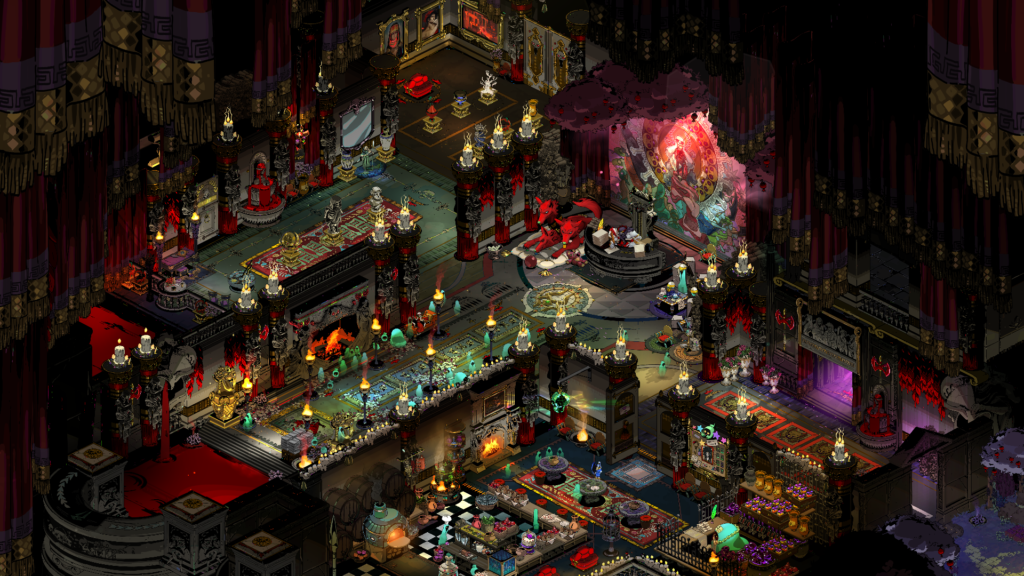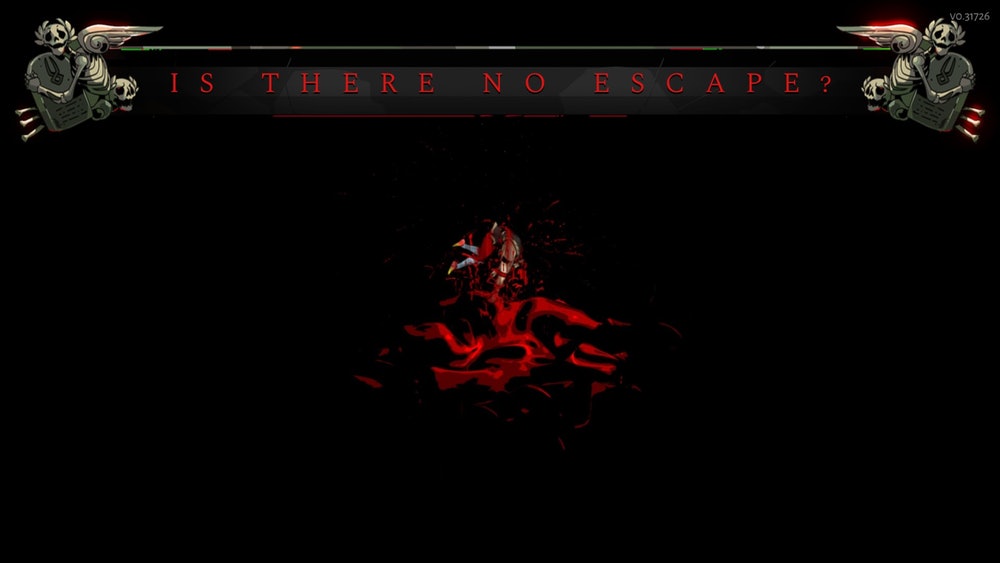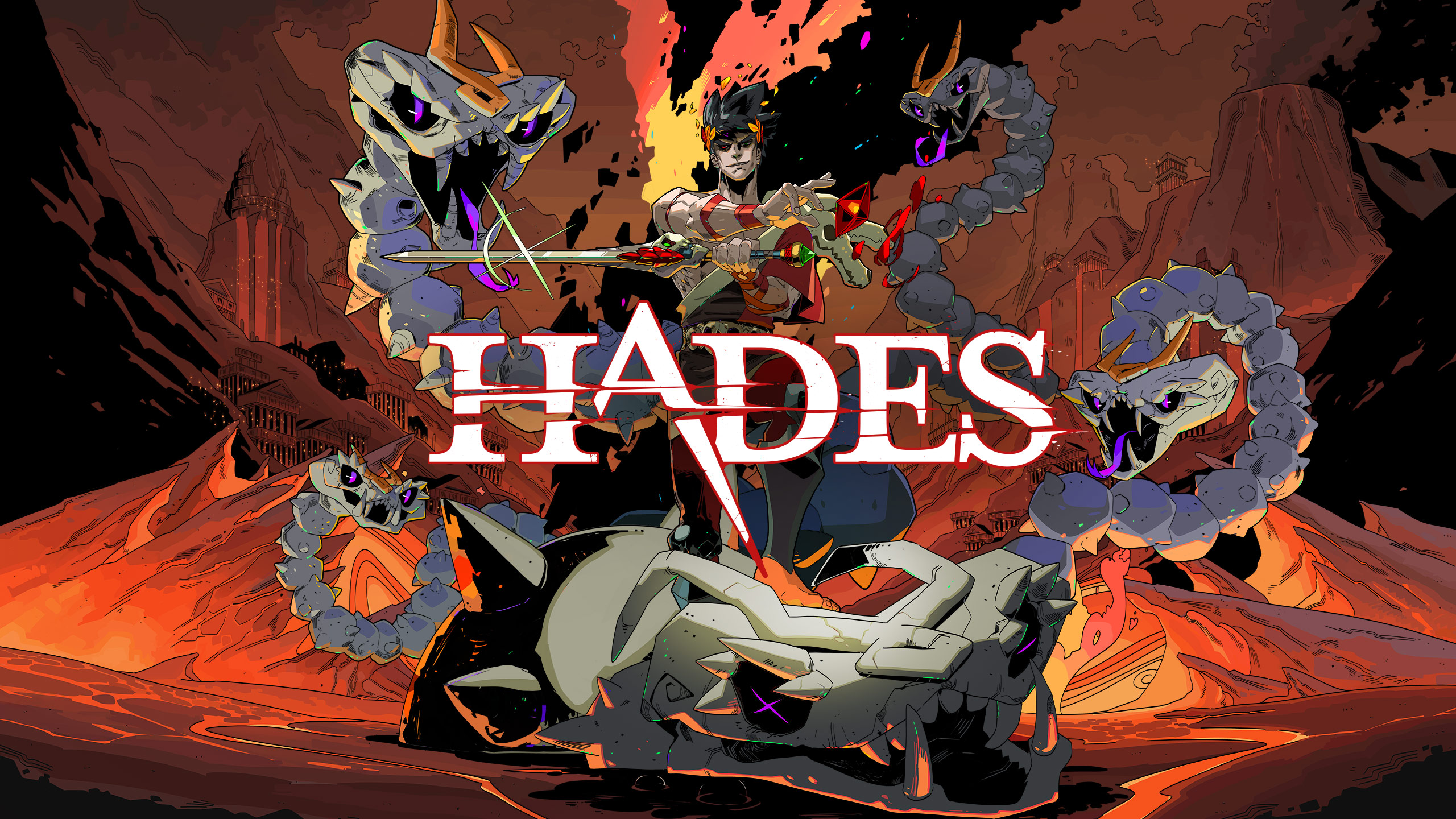“Success is not final, failure is not fatal: It is the courage to continue that counts.”
Winston Churchill
Rarely do we follow the advice given by Churchill and many others of embracing failure and understanding that it is a fundamental part of life and success. Many of us often avoid taking steps that may make us fail, fearing the consequences. Oftentimes, we do not connect that failure is sometimes necessary for success. Video games often give players the opportunity to escape real life, including making decisions they may not otherwise make in real life. Within this blog, I will discuss how roguelikes/roguelites teach us how to find meaning in failure by forcing the player to do so in order to progress.
A Changed Perspective
I have been playing Hades for a while, ever since it came out earlier this year. I fell out of it as the summer came around and school started, so I was excited to come back to it for class. Once I included the critical analysis that we have been developing learning, I realized a unique perspective when it came to playing this game: I didn’t feel like death was failure.
As Hades is a roguelite, it builds upon each run to allow the player to progress further. Hades uniquely includes massive storytelling to reward players and give them ample feedback, signaling them that they are making progress and on the right path. In Hades, the more times you die, the more customization to the lobby, storytelling, and powers you unlock. Below is a list of things you gain every time you die.
- New or strengthened powers
- New interaction with other characters
- New weapons
- New regions
- Weapon customizations
- Lobby customization
- Cutscenes

Usually, in other games I play, I feel like death is failure. I run out of stock in Smash, I die in lane in League, I fall to my death in Portal, etc. Every time I die in these games, I feel punished and my frustration is always furthered. It simply feels like I had failed. However in Hades, although I don’t quite *embrace* death, I am never too off-put by it. With each death, I don’t feel like I’m failing. Although my progress in a run is cut short, I look forward to other parts of the game that I could interact with and discover only by dying. Don’t get me wrong, dying is still jarring and slightly sad, but dying is not failure. In Hades, it is a way to learn, adapt, and understand more about yourself and the world around you.

A Shared Feeling
As I watched IGN reviews for the other games this week, including Slay the Spire, Dead Cells, and The Binding of Isaac: Rebirth, it seemed that my feelings were shared among other reviewers. All of these games have the mechanics of roguelikes/roguelites, the next run builds upon your previous one. Players understand that death is crucial to the gameplay and do not question the mechanic. It is simply a given fact.
Hades inclusion of unique storytelling definitely adds to its replayability. Shared among reviewers, the fact that the story will always have more to give gives each replay more meaning and diversity. I and other reviewers felt that the game truly had endless options despite hours poured into it. We, like Zagreus, know that hope isn’t lost.
Final Thoughts
Through class we have learned that video games can give so much meaning to players and their creators. We can learn so much about our world through games, whether that be about other cultures, careers, and things in life we may never be able to experience in person.
I believe we should take the feelings we develop in roguelikes/roguelites in real life. We are sometimes structured to avoid taking risks or traversing down new paths. Sometimes it takes an alternative reality to learn that the ways we have thought before are wrong. From roguelikes/rougelites, I hope more people understand that failure is not the end and they are in charge of their own fates. I’m sure Winston Churchill would really have appreciated playing Hades, and the way it encourages players to look further than the failure in front of them, and simply having the feeling of wanting to continue on.


Although I played The Binding of Isaac for my game, I felt very similarly. Every time I died, I felt as if I was learning a something new – from learning about different enemies and their movement patterns to whether or not I should pick up a certain item. Although I wasn’t gaining a tangible advantage from my last run, I was gaining knowledge that helped significantly speed up the process of getting back to where I was. Ever time I died, I really did feel encouraged to restart and play it again.
As someone who also played Hades this week, I had a similar feeling of curiosity that came with each death. Hades almost seems to alleviate the consequences of your so-called failure with a set of rewards, since there are new character interactions, house developments, or plot scenes that appear. However, even while these rewards are appealing, there are only so many new aspects that regenerate, so eventually another escape attempt is the only thing left on the to-do list. I found this ironic while playing, since Zagreus himself is incredibly driven to leave the House of Hades at all costs, while I felt myself drawn to these rewards and the House itself. In a way, these rewards encourage the player to continue in their gameplay, giving encouragement for merely attempting to escape.
As someone who played The Binding of Isaac this weekend, I agree that roguelites in general can change your perspective on what “failure” truly is. While I’ve played games before that involve some element of playing through worlds/levels and dying (ie. Super Mario Bros, Limbo, Valiant Hearts: The Great War), I’ve been somewhat comforted in the progress I’ve made in those games through the fact that I have made some progress in the game either through checkpoints I’ve reached or items that I’ve been able to keep. However, The Binding of Isaac, being the roguelite it is, definitely frustrated me at first in how it set you almost completely back to stage 1 every time I’d die during a run. I think by the end of the 5 hours I’d put into the game and the farther I made it into runs, I’d realized similar to you that dying in a rogue lite is not necessarily a “failure” on my part, but instead a learning experience that I could use in my future runs. And while in real life you are not necessarily presented with similar scenarios over and over again if you fail at them, I think there’s something to be said about taking the failures you’ve experienced in life and using them to your advantage when dealing with similar things in the future.
All this discourse on how rougelikes teach us about the importance of failure feels spot on! It makes me think further on the lessons games can teach us perhaps inadvertently. “Binding of Isaac”, “Hades”, “Deadcells” ect. each have their own sort of center stage storyline that comes with its individual message or theme. Yet, the mechanics of the genre of rougelikes itself, via the fundamental scaffolding of the genre, has a sort of, arguably, built in message about the importance of failure for the sake of progression. What other game genres have”built in” so to speak messages and lessons they teacher their players via their game mechanics rather than story? How does this medium of “lesson giving” for lake of a better term, rather than direct storytelling, compare and is it even helpful?
I remember when I first picked up Hades, I was immediately annihilated by Meg. I thought I had made so much progress, and to be set back so quickly was not only frustrating, but it felt as though I had done all that work for nothing. What was the point of making progress if all of it was going to be reset? Hades was my first dive into the rogue-like genre, and I was so excited to see it on the roster for this class as well. I was able to adopt an analytical lens and even your post about shifting perspectives on death. I felt the story was partially not important early on because I was just trying to play, but acknowledging death as part of the story and intentional gameplay opened my eyes to different methods of storytelling. Video games are cool in that way: you can learn super deep life lessons you never intended on by just having fun.